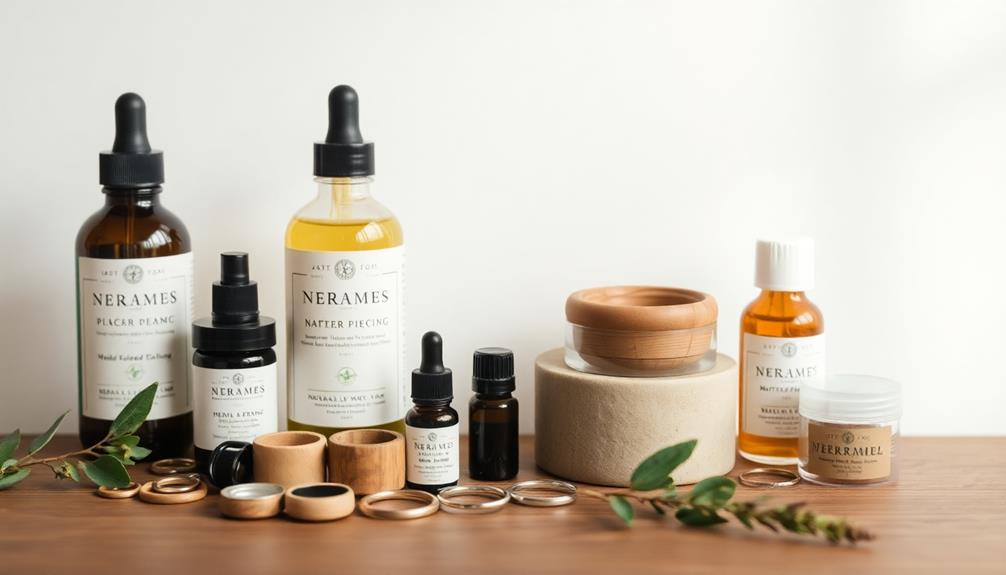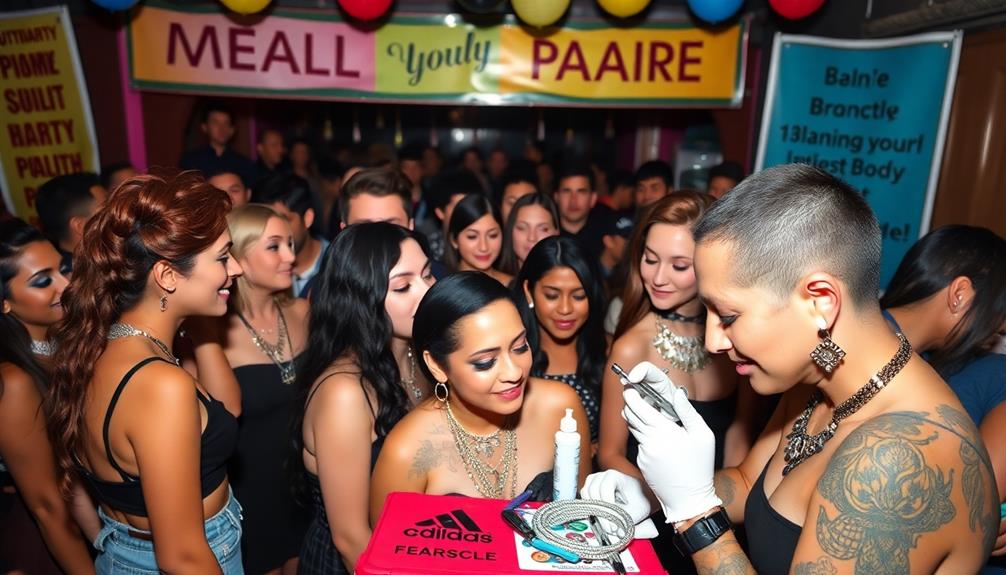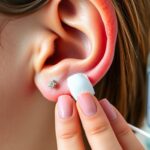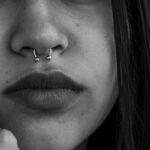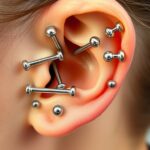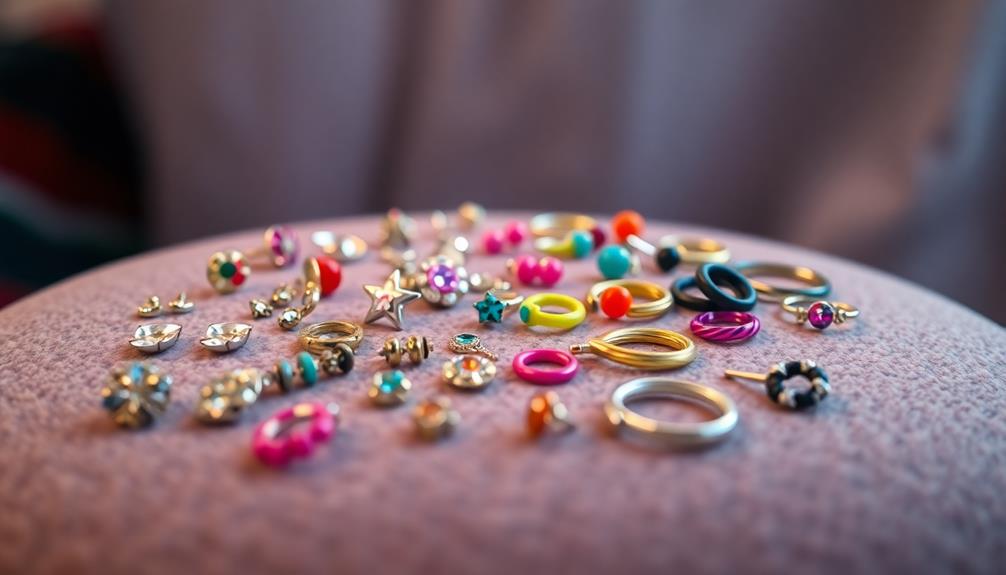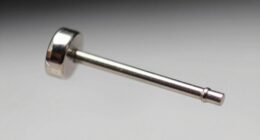You can select vegan-friendly piercing options like surgical stainless steel and titanium, which are both stylish and safe. For aftercare, opt for cruelty-free products made from natural ingredients, like the H2Ocean Complete Sea Salt Saline Kit and A&M Piercing Aftercare Solution. These gentle formulations help heal piercings without irritation. Use a saline solution for soaks and a vegan soap for cleaning, ensuring you always wash your hands first. Aloe and unrefined sea salt are fantastic for hydration and recovery. If you keep going, you'll discover more tips for maintaining beautiful, healthy piercings.
Key Takeaways
- Vegan piercing jewelry options include materials like surgical stainless steel, titanium, and bioflex, all hypoallergenic for sensitive skin.
- Recommended aftercare products feature gentle, cruelty-free formulations with natural ingredients to promote healing and minimize irritation.
- H2Ocean Complete Sea Salt Saline Kit and A&M Piercing Aftercare Solution are popular vegan options known for their effectiveness in healing piercings.
- Key ingredients like unrefined sea salt and aloe barbadensis leaf juice provide hydration and antimicrobial properties for enhanced skin recovery.
- Eco-friendly packaging and sustainable production practices are integral to many vegan aftercare products, supporting both skin health and environmental responsibility.
Overview of Vegan Piercing Options
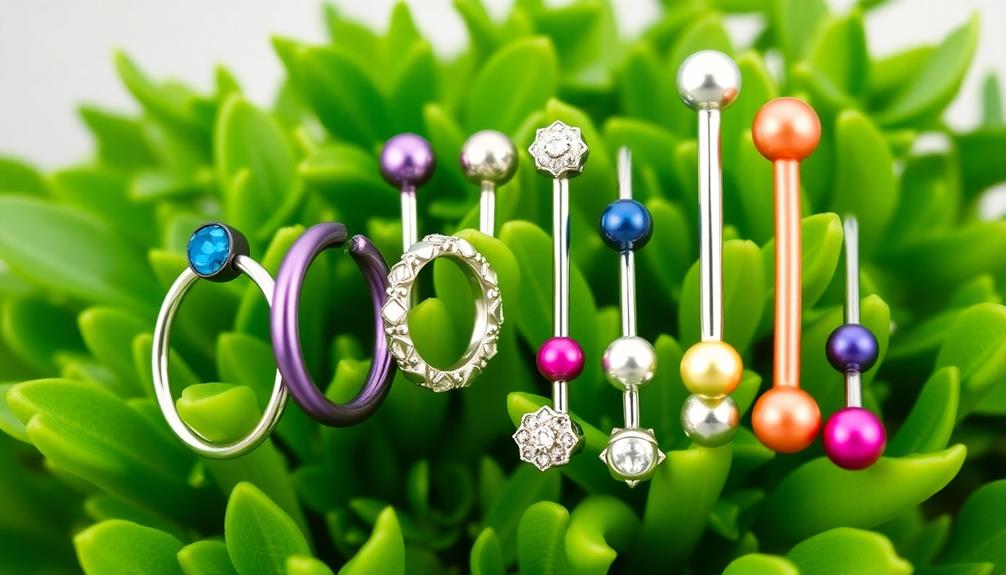
When it comes to vegan piercing options, you can easily find jewelry that aligns with your ethical beliefs without compromising on style or comfort. Materials like surgical stainless steel, titanium, and bioflex are popular choices. These hypoallergenic options are perfect for sensitive skin, allowing you to enjoy your piercings worry-free.
Moreover, many piercing studios now advocate for organic and cruelty-free aftercare products tailored for healing. These products enhance the healing process without harmful chemicals. For example, the H2Ocean Complete Sea Salt Saline Vegan Body Piercing Healing and Cleansing Kit uses natural sea salt and essential minerals to promote recovery effectively.
Additionally, look for aftercare items that incorporate plant-based ingredients like aloe vera and panthenol, which provide hydration and soothing benefits without any animal-derived components.
When you choose vegan-friendly options, you're not just making a fashion statement; you're embracing a lifestyle that prioritizes ethical considerations. Combine your stylish jewelry with a quality Body Piercing Foam Soap, and you'll be on your way to a successful and compassionate piercing experience.
Benefits of Vegan Aftercare Products
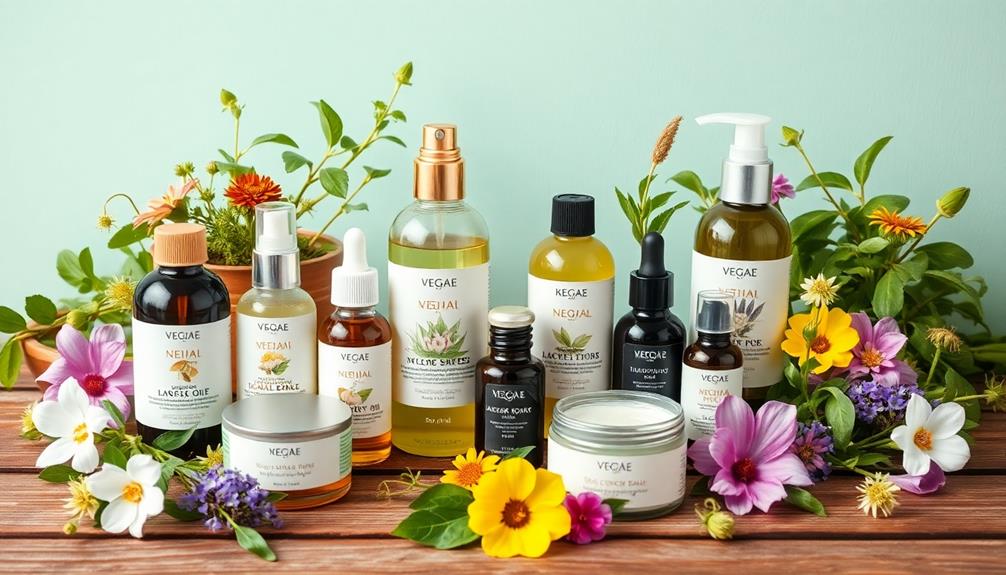
Vegan aftercare products offer a multitude of benefits that enhance your healing experience while aligning with your ethical values. By choosing products like the H2Ocean Complete Sea Salt Saline Kit, you're ensuring a gentle and effective healing process. These formulations are free from harmful chemicals, making them suitable for all skin types, especially sensitive ones.
Here's a quick comparison of some key benefits of vegan aftercare products:
| Benefit | Description | Example Product |
|---|---|---|
| Gentle Formulation | Made without harmful chemicals | Body Piercing Spray |
| Natural Ingredients | Contains organic sea salt and botanicals | H2Ocean Complete Sea Salt Kit |
| Cruelty-Free | No animal-derived ingredients | Various Vegan Piercing Aftercare Products |
| Reduced Irritation | Minimizes allergic reactions during healing | Plant-based Aftercare Solutions |
| Eco-Friendly | Environmentally friendly ingredients and packaging | Sustainable Aftercare Options |
Utilizing these vegan aftercare products not only promotes hydration and supports skin recovery but also contributes to sustainable practices. By prioritizing vegan options, you're making a positive impact on both your body and the environment.
Recommended Aftercare Techniques
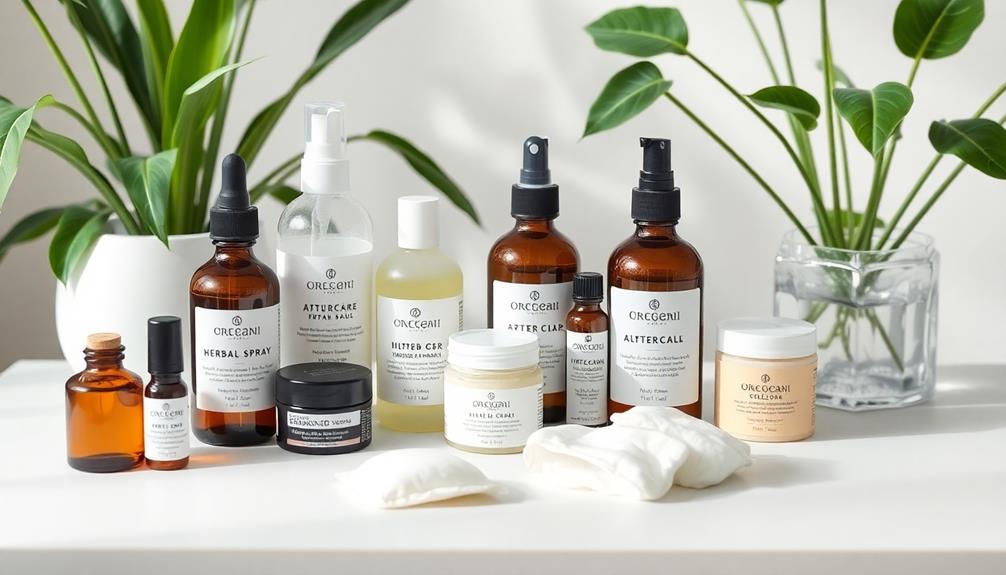
Choosing the right aftercare techniques is essential for guaranteeing your piercings heal properly and stay free of infection. Start by soaking your piercings twice daily with a solution made from H2Ocean Healing Soak mixed with a gallon of purified water. This will promote ideal healing and cleanliness.
Before each soak, apply an antibacterial foam soap, letting it air dry to guarantee effective cleansing.
If you're on the go and can't soak, use Sea Salt Spray as a convenient alternative. It helps maintain hygiene without the need for soaking.
Always remember to wash your hands thoroughly before touching your piercings; this simple step minimizes the risk of introducing bacteria and supports a clean healing process.
Additionally, follow the recommended usage of 2-3 applications of A&M Piercing Aftercare Solution throughout the day. This product aids in maintaining hygiene and supporting healing without causing irritation.
Key Ingredients for Healing
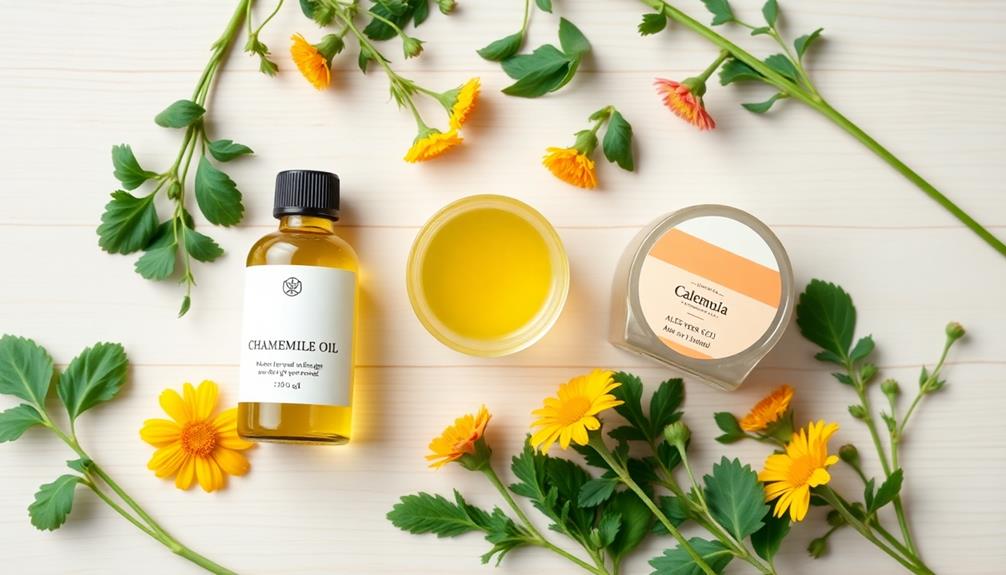
When you're healing from a piercing, the right ingredients can make all the difference.
You'll want to focus on essential minerals that promote healing, along with natural antimicrobial properties to keep your piercing clean.
Hydration and skin care are key, so choosing products with nourishing elements will help your skin recover effectively.
Essential Minerals for Healing
Healing from a new piercing requires more than just proper care; it involves nourishing your body with essential minerals that support recovery.
These minerals are essential for your healing process, helping to reduce inflammation and promote hydration. One excellent source is unrefined sea salt from the Red Sea, which contains over 82 trace minerals. Incorporating this into your aftercare routine can greatly boost your body's ability to heal.
Additionally, plant-based ingredients like aloe barbadensis leaf juice are important for skin hydration. This natural remedy not only soothes irritation but also enhances skin elasticity, making it easier for your body to recover.
Don't overlook the importance of natural emollients, such as panthenol, which help retain moisture and improve overall skin health around pierced areas.
While essential minerals are key, remember that certain plant extracts, like allantoin, accelerate tissue repair and improve comfort.
By integrating these elements into your aftercare plan, you'll create a prime environment for your piercing to heal effectively.
Prioritize these essential minerals for a smoother healing process and enjoy your new piercing with peace of mind.
Natural Antimicrobial Properties
Proper aftercare not only involves nourishing your body with essential minerals but also utilizing natural antimicrobial ingredients that promote healing and protect against infections.
By integrating these components into your routine, you can considerably enhance your healing time and guarantee a smoother recovery.
Here are four key ingredients with natural antimicrobial properties to evaluate:
- Unrefined Sea Salt: Found in the H2Ocean Complete Sea Salt Saline Kit, it contains over 82 trace minerals that aid skin healing and hydration.
- Benzalkonium Chloride: This gentle antibacterial agent prevents infections during the healing process of new piercings.
- Aloe Barbadensis Leaf Juice: Known for its soothing properties, it helps enhance moisture and supports the healing process.
- Sodium Hypochlorite: Present in A&M Piercing Aftercare Solution, it creates a hypochlorous solution that effectively cleanses the skin while maintaining a neutral pH to minimize irritation.
Incorporating these ingredients into your aftercare routine can help you maximize the natural antimicrobial properties available, ultimately leading to a quicker healing time for your piercings.
Hydration and Skin Care
Adequate hydration plays an essential role in your skin care routine, especially after getting a piercing. Proper hydration helps maintain skin elasticity and supports the natural healing process, preventing dryness and irritation.
To enhance your aftercare, look for vegan-friendly products rich in key ingredients. Aloe barbadensis leaf juice is a must-have in your aftercare arsenal. It provides intense hydration and soothing properties, perfect for sensitive skin.
Additionally, panthenol acts as a natural emollient—it effectively moisturizes and promotes faster recovery. When considering cleansing, unrefined sea salt from the Red Sea is a fantastic option. Packed with over 82 trace minerals, it hydrates while offering gentle antibacterial cleansing, which is crucial for healing.
You'll also want to check for allantoin in your products; this natural plant extract supports skin rejuvenation and offers extra hydration, ensuring a comfortable healing experience.
Incorporating these ingredients won't only improve your hydration but also accelerate the healing of your piercing, making your aftercare routine effective and enjoyable.
Prioritize hydration, and you'll see the benefits in no time!
Customer Experiences and Feedback

Many customers have shared their positive experiences with vegan-friendly piercing aftercare products, often highlighting their effectiveness and gentle formulations. With high satisfaction rates, it's clear these products can make a difference in your healing journey.
Here are some key points echoed by users:
- A&M Piercing Aftercare Solution: With an impressive average rating of 4.9/5 from 1,912 reviews, this product stands out for its healing effectiveness.
- H2Ocean Complete Sea Salt Saline Kit: Users frequently praise this kit for reducing healing time and complications, often sharing personal success stories.
- Gentle Formulations: Many reviews indicate that ingredients like panthenol and allantoin are gentle on sensitive skin, minimizing irritation during the healing process.
- Versatile Sea Salt Spray: Customers appreciate its on-the-go convenience, providing effective cleansing and hydration for piercings no matter where they are.
Additionally, positive feedback often emphasizes the quality of customer service, with brands being responsive to concerns about their aftercare products.
Your experience with these vegan-friendly options could be just as rewarding!
Related Vegan Aftercare Products
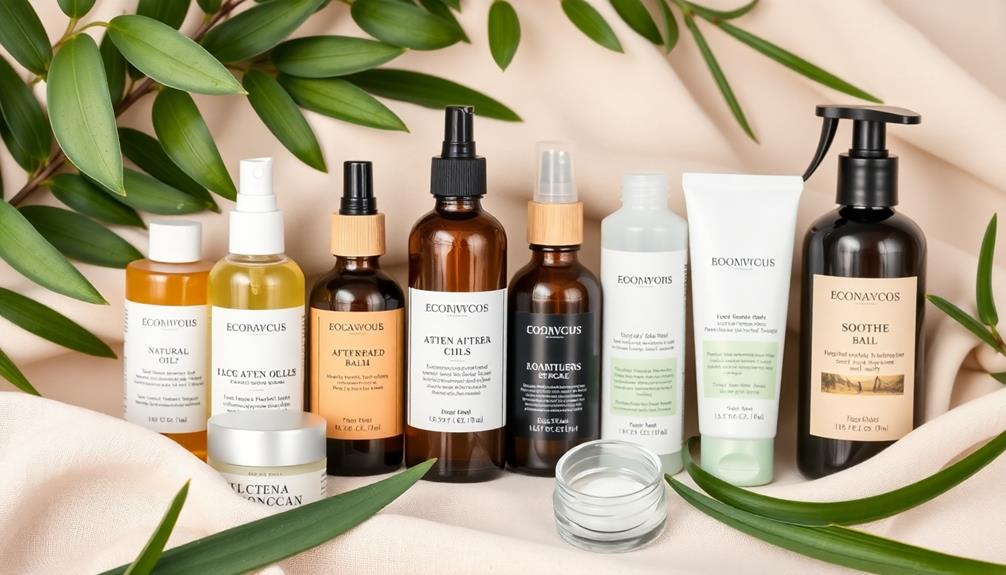
When caring for your new piercings, choosing the right aftercare products can make all the difference. Look for options that are both vegan and effective, like the H2Ocean Complete Sea Salt Saline Vegan Body Piercing Healing and Cleansing Kit. This kit contains 100% vegan ingredients designed to promote faster healing and minimize complications.
Another excellent choice is the A&M Piercing Aftercare Solution. It's cruelty-free, alcohol-free, and formulated without fragrance or colorants, ensuring top hygiene without irritating your skin.
If you're looking for soap, consider the Aftercare Soap, which features a vegan formula enriched with panthenol and allantoin to hydrate and heal.
For on-the-go care, both the Sea Salt Body Piercing Spray and Healing Ocean Sea Salt Wound Wash are all-natural, vegan-friendly products available for just $15.00 each. These gentle mist sprays offer effective cleansing without harsh chemicals.
Lastly, Alteya Organics provides a USDA certified organic option featuring Bulgarian Rose Otto, known for its skin health benefits.
With these vegan aftercare products, you can support your body's healing process while staying true to your values.
Frequently Asked Questions
What Is a Good Substitute for Piercing Aftercare?
A good substitute for piercing aftercare is a saline solution made from sea salt and distilled water. You can also use organic aloe vera gel for soothing, or diluted witch hazel for gentle cleansing.
What Is the Best Product for Piercing Aftercare?
Just as a gardener nurtures a delicate bloom, you need the right care for your piercing. Choosing a gentle, effective aftercare product guarantees your healing journey is smooth, minimizing complications and encouraging vibrant recovery.
What Can I Use for Piercing Aftercare at Home?
You can use a saline solution made from organic sea salt mixed with purified water for soaking. Also, apply antibacterial foam soap before soaks, and consider a gentle sea salt spray for convenient on-the-go care.
How Do You Clean a Piercing Without Aftercare?
To clean your piercing without aftercare products, mix 1/4 teaspoon non-iodized sea salt in warm distilled water. Use clean hands to gently rinse the area, avoiding alcohol or hydrogen peroxide, which can irritate.
Conclusion
In choosing vegan-friendly piercing options and aftercare products, you're not just caring for your body but also making a compassionate choice. Remember, "you reap what you sow." By investing in cruelty-free products, you're nurturing your skin while supporting ethical practices. With the right techniques and ingredients, your healing process can be smooth and effective. Embrace this journey with confidence, and let your commitment to a vegan lifestyle shine through in every aspect, including your body art.

